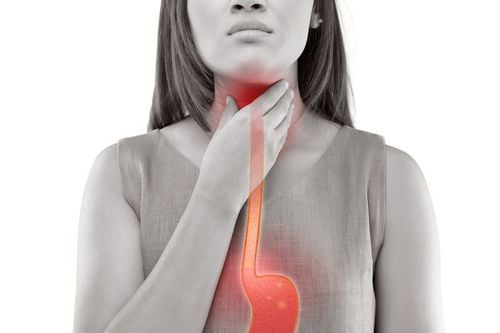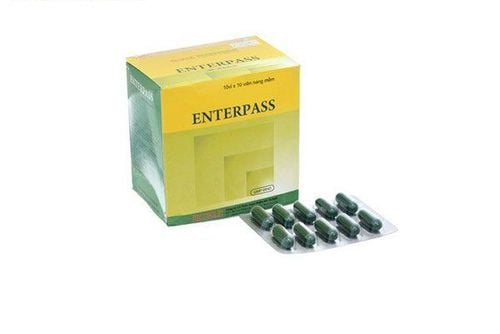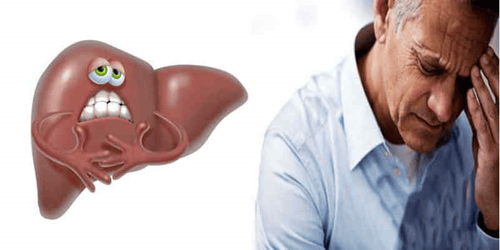This is an automatically translated article.
Posted by Master, Doctor Mai Vien Phuong - Department of Examination & Internal Medicine - Vinmec Central Park International General HospitalFrequent bowel movements, bloating, and abdominal pain can be aggravated by anything that causes diarrhea or constipation. For many people, changing eating habits is enough to ease gas and its accompanying symptoms.
1. Is a lot of transit normal?
The average adult passes gas (passing, or farting) between 13 and 21 times a day. Gas is a normal part of the digestive process. But if gas builds up in your intestines and you can't get it out, you may start to feel pain and discomfort.
Frequent bowel movements, bloating and abdominal pain can be aggravated by anything that causes diarrhea or constipation. Excessive bowel movements can also be caused by:
Overeating; Swallowing air while you eat or drink; Chewing gum; Smoke; Eat certain foods. Make an appointment with your doctor if your profuse bowel symptoms:
Make you uncomfortable; Sudden change; Accompanied by constipation, diarrhea or weight loss. Your doctor can determine the underlying cause.
2. How to get rid of repeated bowel movements?
Usually, your gas is caused by what you eat. Food is digested mainly in your small intestine. What remains undigested is fermented in the large intestine with bacteria, fungi, and yeast, as part of the digestive process. This process produces methane and hydrogen, which are excreted as fat.
For many people, changing eating habits is enough to ease gas and its accompanying symptoms. One way to determine which foods are causing your bloating is to keep a food diary. Common culprits include:
Fiber-rich foods; Foods with a high fat content; Fried or spicy foods; Gas drink; Artificial ingredients commonly found in low-carbohydrate and sugar-free products, such as sugar alcohols, sorbitol, and maltitol; Beans and lentils; Cruciferous vegetables, such as Brussels sprouts, cauliflower and broccoli; Prunes or prune juice; Foods that contain lactose, such as milk, cheese, and other dairy products; Fermentable oligosaccharides, disaccharides, monosaccharides and polyols (FODMAP) - molecules found in many foods, such as garlic and onions, can be difficult to digest; Over-the-counter drinks and supplements. Once you figure out which foods are causing your frequent bowel movements, you can modify your diet to avoid this problem.

3. Tips to get rid of repeated bowel movements and accompanying symptoms
If dietary changes don't completely work, you have several options to try.
Mint Studies have shown that peppermint tea or supplements can reduce symptoms of irritable bowel syndrome, including bloating. Talk to your doctor before you start using supplements. Mint can interfere with the absorption of iron and some medications. It can also cause heartburn in some people.
Supplements will have instructions on how much you should take in the bottle. For mint tea, drink one cup before each meal for best results.
Chrysanthemum tea Chamomile tea can also help relieve indigestion and flatulence. Drinking chamomile tea before meals and at bedtime may relieve symptoms for some people.
Simethicone Simethicone is an over-the-counter medication that is available under several different brand names. Includes:
Air-X; Mylanta Gas; Phazyme. Simethicone works by fusing the air bubbles in your stomach, allowing you to expel them more easily. Follow dosing instructions and be sure to discuss this medication with your doctor if you are taking other medications or are pregnant.
Activated Charcoal Activated charcoal is another over-the-counter medication that helps get rid of stagnant gas in the colon. You take the medicine just before and an hour after a meal.
Apple Cider Vinegar Dilute one tablespoon of apple cider vinegar in a beverage, like water or tea. Take immediately before meals or up to three times daily for as long as needed to relieve symptoms.
Physical activity Exercise can help release trapped gas and pain caused by qi. Try walking after a meal as a way to avoid bloating. If you have pain from gas stagnation, jumping rope, running, or walking can help relieve the pain.
Added lactase Lactose is a type of sugar in milk. People who are lactose intolerant cannot digest this sugar. Lactase is the enzyme the body uses to break down lactose. Lactose supplements are available over the counter and can help your body digest lactose.
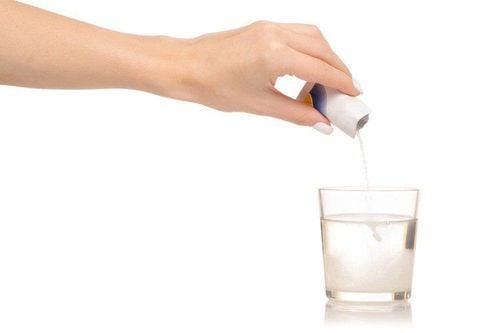
Clove Clove is an herb used in cooking. Clove oil can help reduce gas and bloating by producing digestive enzymes. Add two to five drops to an 8-ounce glass of water and drink it after a meal.
4. Prevent gas formation in the intestinal tract
If no health condition is causing the problem, gas can best be prevented by changing lifestyle and dietary habits:
Sit down at each meal and eat slowly; Try not to breathe in too much air while eating and talking; Stop chewing gum; Avoid soda and other carbonated drinks; Avoid smoking; Find ways to incorporate exercise into your routine, such as walking after meals; Eliminate foods known to cause gas; Avoid drinking through a straw; Conditions that cause flatulence, abdominal pain, and bloating; A number of conditions can cause an excess of gas. These include:
Gastroenteritis; Lactose intolerance ; Celiac disease; Crohn's disease; Diabetes; Peptic ulcer; Irritable bowel syndrome . In a nutshell, gas can be painful, but it's usually not dangerous. If abdominal pain or bloating is your problem, take a look at your diet and lifestyle to see what you can change. In many cases, lifestyle and dietary changes can eliminate the problem altogether. Make an appointment with your doctor if you don't notice a difference after a few weeks of lifestyle and dietary changes. Your doctor may run tests to see if your symptoms are caused by a medical condition.
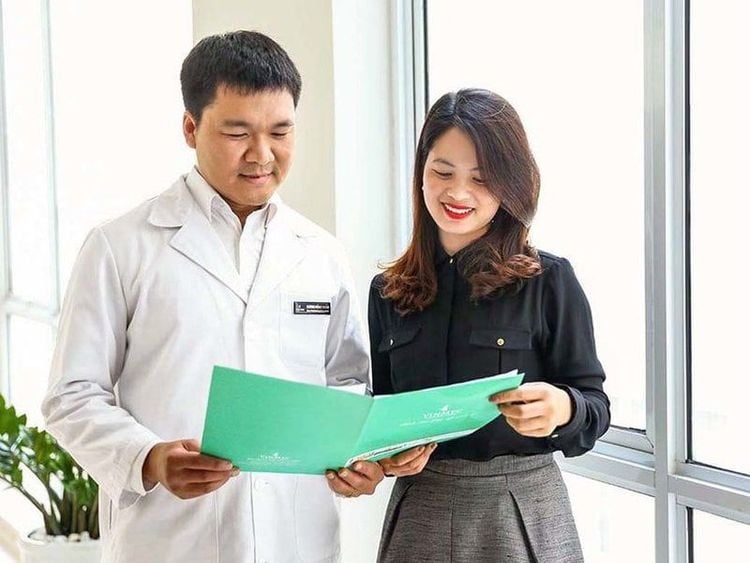
Currently, Vinmec International General Hospital is a prestigious address trusted by many patients in performing diagnostic techniques for digestive diseases, diseases that cause chronic diarrhea, Crohn's disease... Along with Meanwhile, at Vinmec Hospital, screening for gastric cancer and gastric polyps was performed through gastroscopy with an Olympus CV 190 endoscope, with NBI (Narrow Banding Imaging) function. narrow) results in clearer images of mucosal pathology analysis than conventional endoscopy, detecting ulcerative colitis lesions, early gastrointestinal cancer lesions... Vinmec Hospital with With modern facilities and equipment and a team of experienced experts, always dedicated to medical examination and treatment, customers can be assured of gastroscopy and esophagoscopy services at General Hospital. Vinmec International.
Please dial HOTLINE for more information or register for an appointment HERE. Download MyVinmec app to make appointments faster and to manage your bookings easily.






